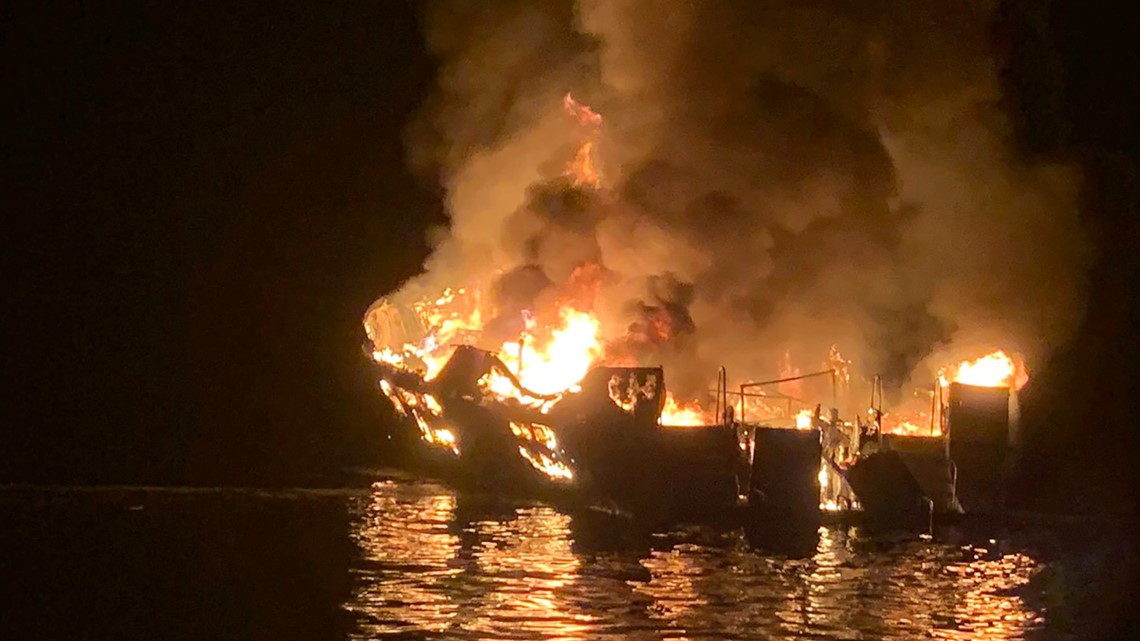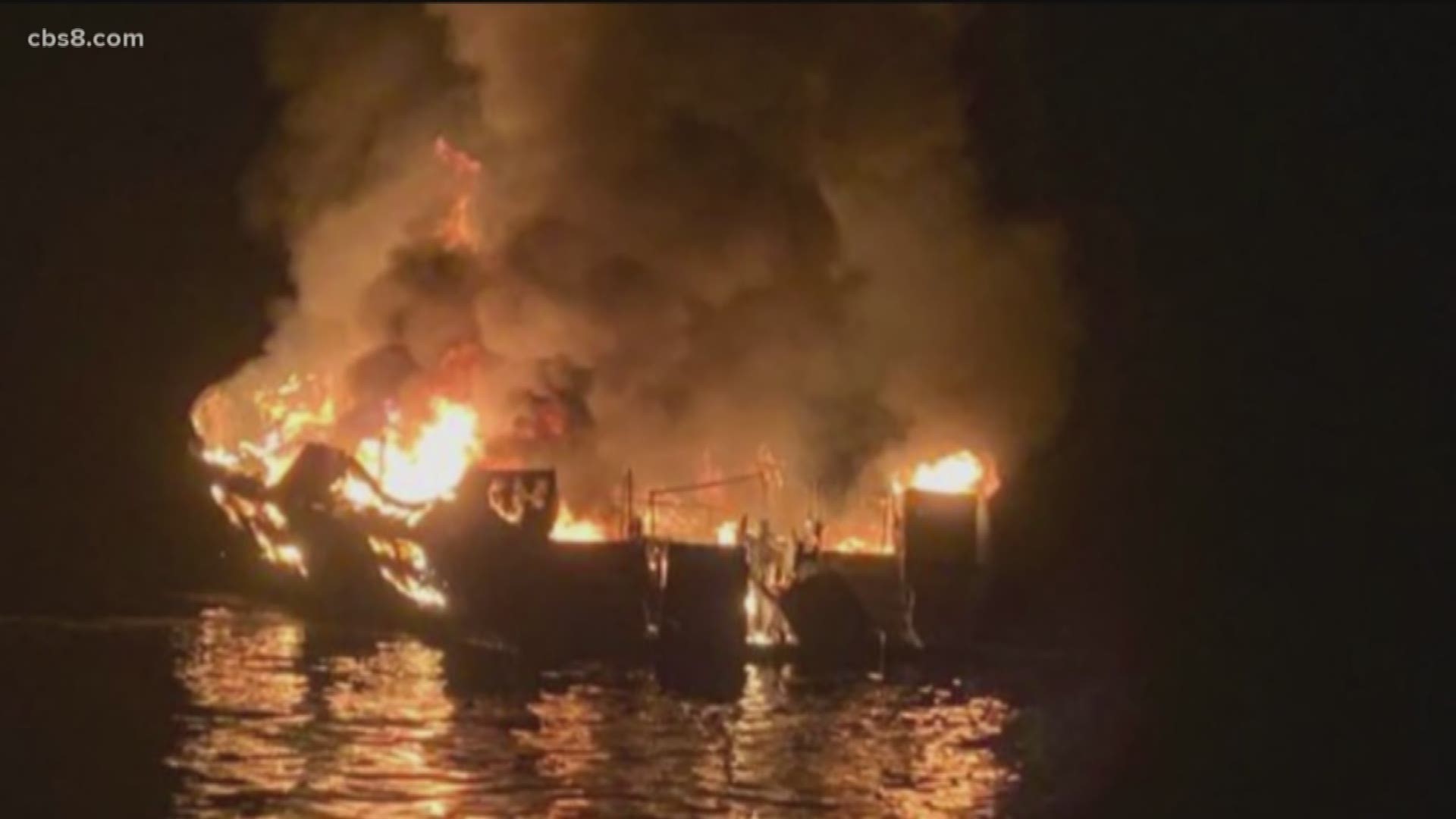LOS ANGELES — All six crewmembers were asleep aboard a scuba diving boat off the Southern California coast when a fire broke out in the middle of the night, killing 34 people who were trapped in a bunkroom below the main deck, federal investigators announced Thursday.
Boats like the Conception, which caught fire around 3 a.m. on Sept. 2 and sank, are required to have a crewmember keep watch at night.
The National Transportation Safety Board has been investigating the tragedy and released a two-page preliminary report that said five crew members were sleeping in their quarters behind the wheelhouse on the second deck and another below deck when the fire broke out.
The report comes as investigators seek to determine the cause and try to recover the wreckage of the Conception from the bottom of the sea amid an ongoing criminal probe conducted by the FBI, Coast Guard and the U.S. Attorney's Office.
Divers on Wednesday recovered the remains of the last victim — one of dozens who died of smoke inhalation as they were trapped below a raging fire.
The Coast Guard has issued additional safety recommendations in the wake of the tragedy, such as limiting the unsupervised charging of lithium-ion batteries and the use of power strips and extension cords.
The recommendations also suggest owners and operators of vessels review emergency duties with the crew, identify emergency escapes, check all firefighting and lifesaving equipment onboard, and look at the condition of passenger accommodation spaces for "unsafe practices or other hazardous arrangements."
Coast Guard records show the Conception passed its two most recent inspections with no safety violations. Previous customers said the company that owns the vessel, Truth Aquatics, and the captains of its three boats, were very safety conscious.
James Hall, a former NTSB chairman, told The Associated Press a preliminary report is generally a summary of the early findings that relies on interviews, inspection documents and other records and a review of current maritime rules and regulations.



